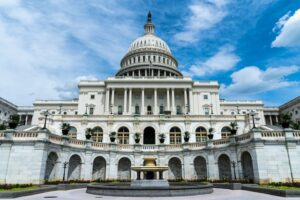AFIRE News

Already leveraged for other commercial real estate asset types, mass timber has the potential to revolutionize industrial real estate development by offering sustainable, durable, and efficient construction solutions.

The AFIRE Q1 2024 Investor Survey, underwritten by Holland Partner Group, provides key insights into the commercial real estate strategy of global investors.

In the face of increased technological proliferation, property owners must develop new systems that not only safeguard their intellectual and physical assets, but also verify and track digital interactions (and revenue) tied to their properties.

The growth outlook for listed infrastructure continued to improve in 2024. Companies have been key beneficiaries of a virtuous cycle of generative AI development, and today’s generative AI needs represent a game change for the utility sector.

By emphasizing sustainability, social impact, and economic uplift, investors who participate in these purpose-driven projects are investing in the long-term economic health of the communities in which they live and serve.

The National Association of Home Builders’ Multifamily Production Index reported a low score towards the end of 2024, but instead of serving as a red flag for developers, a low rating can also be seen as an opportunity.

Retail has gone from being the weakest asset class to a promising one due to modest inventory growth and the elimination of redundant space. Opportunities abound in growing markets in which retail has not yet caught up with an increasing population.

Take the new AFIRE Spring 2025 Investor Survey. 20 questions, 12-17 minutes to complete. Deadline: March 25. Results published April 2025.

COVID-19 was a demographic shock with dissipating effect. Disparities remain, but the direction of change is toward narrowing the gap between metros with declining vs. fast-growing populations.

AFIRE’s award-winning Summit Journal is seeking articles from investors, academics, and experts focused the energy sector and the future of commercial real estate for our first-ever “Power Issue.”

The current environment offers unique entry points that should not be overlooked, and investors who continue to be active in markets with steady demand, growth drivers, and supply limitations will be rewarded.

The US remains the largest global commercial real estate market, as past return performance, favorable growth and demographics, and a diverse asset base continue to appeal to foreign investment.

It feels like we have finally emerged from five years of economic turbulence in a better position than we might have feared along the way.

Summit Journal Issue 17 explores the growing gap between our economic assumptions about the state of the world and the reality of daily life in the built environment. What should we understand about commercial real estate today to better plan for tomorrow?
Investment innovator Neville Rhone Jr. describes the new opportunities found in commercial real estate’s “middle market.”
Brian Klinksiek, the global head of research and strategy at LaSalle Investment Management, thinks we’re turning a page to a new market in 2025
Neil Mandt is a five-time Emmy winner and the founder & CEO of Digital Rights Management discussing digital rights and augmented reality in CRE.
Jim Costello is the Chief Economist for MSCI Real Assets forecasting how the Trump administration will affect commercial real estate in 2025.
Melissa Román Burch, COO of the NYC Economic Development Corporation, discusses the outlook for the 2025 NYC office market.
Spencer Levy, Global Client Strategist and Senior Economic Advisor for CBRE, discusses how operations will be key to real estate success in the year ahead.
Media Coverage

Only a few years after many observers were declaring that New York City, San Francisco and other gateway U.S. cities have forever lost their appeal to commercial real estate investors, new sentiment surveys are showing gateway markets are coming back in favor.

The U.S. media continues putting rising interest rates and ongoing inflationary concerns in its headlines. Yet despite all of this, international institutional investors continue to view U.S. commercial real estate as “a preferred destination, relative to Europe, for real estate investment across property types,” according to a recent survey released by the Association of Foreign Investors in Real Estate (AFIRE).

More than 20 properties in the Dallas-Fort Worth area tied to commercial mortgage-backed securities are considered to be financially stressed as property values decline or vacancy rises, reflecting the nationwide fallout from reduced demand.

AFIRE, the association for international real estate investors focused on commercial property in the United States, has released its AFIRE International Investor Survey: Q1 2023 Pulse Report, underwritten by Holland Partner Group.

Allocations among top investors for commercial real estate in the US were up 6% over a year ago, while European investments declined by 5%, according to a survey by AFIRE.

The U.S. remains a preferred global destination for commercial real estate investment with allocations up 6% from 2022, compared to a 5% decline in European investment, according to AFIRE’s International Investor Survey: Q1 2023 Pulse Report.

AFIRE, the association for international real estate investors focused on commercial property in the United States, has released its AFIRE International Investor Survey: Q1 2023 Pulse Report, underwritten by Holland Partner Group.

The US trails the EU on adoption of ESG investment principles, with a consensus that more incentives are needed for momentum.

Real estate company Climate Core Capital and the Harvard Graduate School of Design explored how quickly some of the nation’s most desirable real estate markets would heat up beyond the point of tolerable human living in what they called a “Death Valley Index.”

While the strong dollar makes acquisitions costlier, the U.S. offers a safe haven from geopolitical upheaval.

AFIRE survey shows reuse, redevelopment top of mind as market turbulence looms.

AFIRE released its Summer 2022 International Survey Pulse this past week, which found mounting concerns about US commercial real estate.

Foreign institutional investors are adapting to market headwinds as they grapple with mounting inflation and rising interest rates in the US, according to the latest survey from AFIRE, the association for international real estate investors focused on commercial property here.

Chicago’s tech sector is on the rise, but to keep the momentum going, commercial real estate brokers and investors alike advise investing in places for well-paid tech talent to live.

Rising rates and inflation are making it hard for foreign investors to assign correct valuations to assets. But experts say those are temporary setbacks and cross-border investment will rebound.

On this episode, Gunnar shared his insights on why the U.S. Real Estate Market continues to attract foreign investors.

Senators Joe Manchin (D-WV) and Lisa Murkowski (R-AK) have led bipartisan meetings with lawmakers over the last two weeks to explore potential areas of agreement for a scaled-back energy and climate legislative package before the midterm elections.

Foreign investors in commercial real estate have long preferred to place their money in a small handful of top-tier cities like New York, Chicago and San Francisco.

For thirty years, AFIRE (Association for International Real Estate Investors) has conducted an annual survey to understand the goals, challenges and long-term thinking of international investors in U.S. real estate. Show host Michael Bull interviews AFIRE CEO Gunnar Branson on the results and insights from this year’s survey.

New favorites are emerging as international buyers plan bigger allocations this year.
